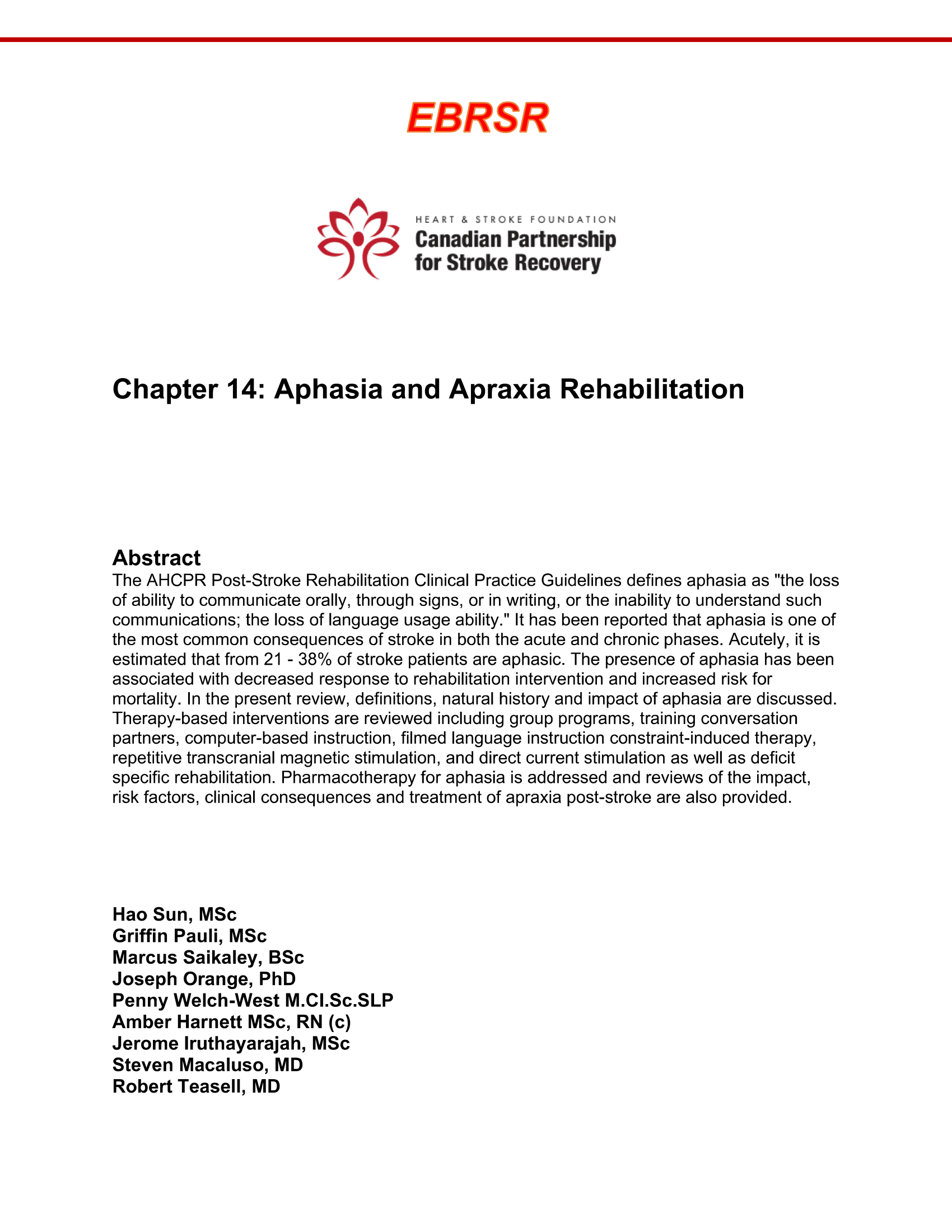Aphasia and Apraxia
Chapter 14
The AHCPR Post-Stroke Rehabilitation Clinical Practice Guidelines defines aphasia as "the loss of ability to communicate orally, through signs, or in writing, or the inability to understand such communications; the loss of language usage ability." It has been reported that aphasia is one of the most common consequences of stroke in both the acute and chronic phases. Acutely, it is estimated that from 21 - 38% of stroke patients are aphasic. The presence of aphasia has been associated with decreased response to rehabilitation intervention and increased risk for mortality. In the present review, definitions, natural history and impact of aphasia are discussed. Therapy-based interventions are reviewed including group programs, training conversation partners, computer-based instruction, filmed language instruction constraint-induced therapy, repetitive transcranial magnetic stimulation, and direct current stimulation as well as deficit specific rehabilitation. Pharmacotherapy for aphasia is addressed and reviews of the impact, risk factors, clinical consequences and treatment of apraxia post-stroke are also provided.
Keywords:
Aphasia, apraxia, language therapy, trained volunteers, community-based, conversation partners, group therapy, education, computer-based therapy, telerehabilitation, filmed language, transcranial stimulation, direct current stimulation, constraint induced, forced use, alexia, word retrieval, global aphasia, drug therapy



